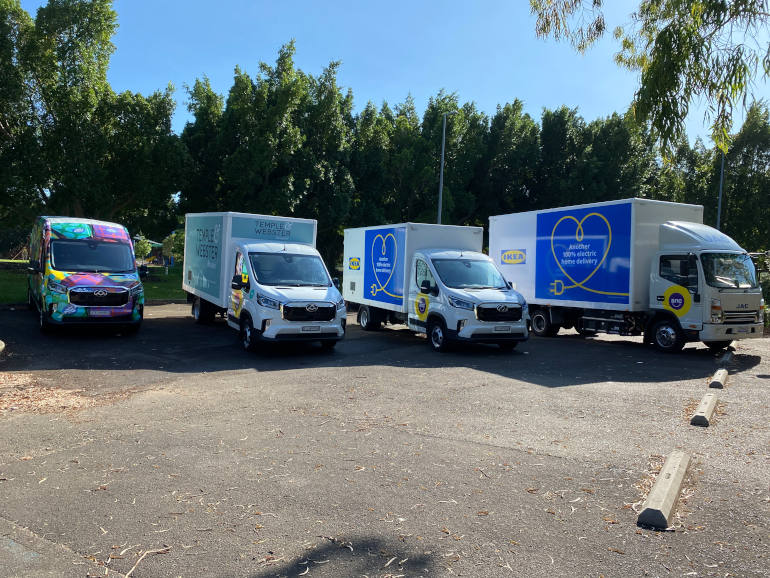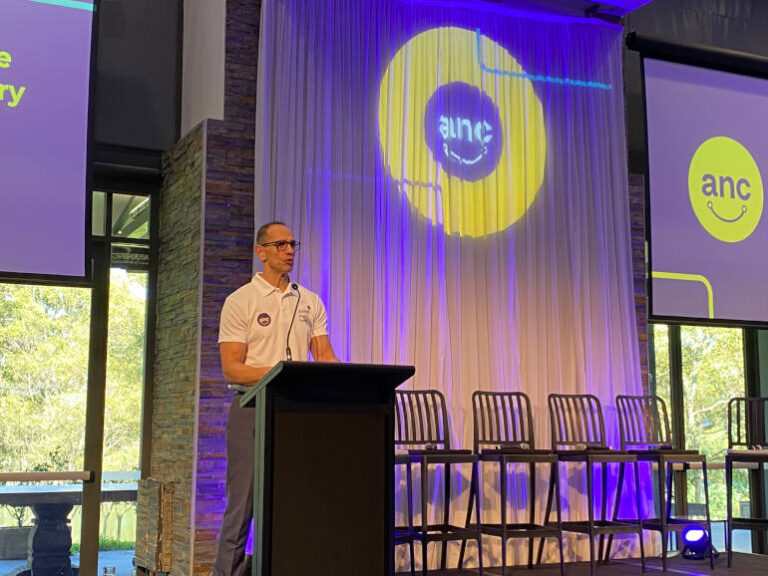ANC Delivers, a leader in last-mile delivery services, is making significant strides in transitioning its fleet to electric vehicles (EVs). At a recent event celebrating this transition, CEO Joe Sofra highlighted the progress made, the challenges faced, and the opportunities ahead. Project Spark, ANC’s ambitious electrification initiative, is at the heart of this effort, aiming to build Australia’s largest fleet of last-mile electric delivery vehicles.
A Commitment to Sustainability
Sofra emphasised that sustainability is more than an environmental obligation for ANC; it is a core strategic pillar ensuring long-term organisational relevance. The company’s push towards electric delivery vehicles started in 2019 with the acquisition of three EVs. Since then, ANC has gained valuable insights that are shaping its large-scale adoption plans. By 2028, the company aims to convert 30% of its 1,000-vehicle fleet to electric, with aspirations to exceed this target by the decade’s end.
There are three key reasons driving ANC’s commitment to fleet electrification:
- Corporate Responsibility: As a major transport operator, ANC acknowledges its duty to reduce carbon emissions.
- Client Expectations: Many of ANC’s partners expect the company to help lower their Scope 3 emissions, making fleet sustainability a business imperative.
- Consumer Demand: Customers are increasingly prioritising sustainability in their purchasing decisions, influencing retailers to seek greener supply chain solutions.
Scaling Challenges and Solutions
Transitioning a large fleet to electric is not without its hurdles. Sofra acknowledged that technology maturity, infrastructure constraints, and cost remain significant challenges. To address these, ANC secured funding from the Australian Renewable Energy Agency (ARENA), allowing the company to scale its fleet conversion based on real-world data and operational learnings.
A critical aspect of ANC’s strategy is optimisation. Simply replacing internal combustion engine (ICE) vehicles with EVs is not enough—reducing overall kilometres driven and enhancing operational efficiencies are just as important. Sofra highlighted that every new EV still carries a carbon footprint from its production. Therefore, maximising vehicle efficiency is a crucial part of ANC’s approach to sustainability.

Project Spark: The Road Ahead
Project Spark, launched in June 2024, is ANC’s flagship program to deploy Australia’s largest commercial EV fleet. Over the next few years, 112 electric vehicles—comprising 27 trucks and 85 cab chassis models—will be introduced, along with 112 charging stations. A mix of at-home, depot, and commercial charging solutions will be implemented to support these vehicles.
A notable advantage of electric last-mile delivery vehicles is their ability to operate with minimal noise. This feature allows deliveries to be made in suburban areas without contributing to noise pollution, thereby extending delivery windows and improving service efficiency. Furthermore, ANC is leveraging regenerative braking technology to enhance energy efficiency while optimising vehicle deployment for specific delivery routes.
Commercialisation and Market Readiness
Sofra stressed that ANC’s electrification efforts are not just about adopting new technology but proving its commercial viability. The company is focused on demonstrating that EVs can meet the demands of last-mile delivery while overcoming infrastructure barriers. Range anxiety is not a major concern for ANC; instead, the focus is on range extension through route optimisation.
ANC’s approach to commercialisation involves deploying EVs incrementally—starting with 60 vehicles, scaling to 120, and eventually expanding to 200. The goal is to establish EVs as mainstay assets across ANC’s contracts, thereby encouraging broader industry adoption. Sofra also underscored the importance of knowledge-sharing, stating that widespread industry adoption will make commercial EVs more viable in the long term.
Partnerships Driving Change
One of ANC’s most significant partners in this transition is IKEA. Sofra commended IKEA for its commitment to sustainability, highlighting the retailer’s proactive approach in both promoting and investing in EV infrastructure. He recognised IKEA’s leadership in pushing sustainable retail practices, which has been instrumental in motivating ANC and others to meet ambitious emissions reduction targets.
The event included a presentation by Simon Griffin, CEO and co-founder of ‘Who Gives a Crap,’ another key partner in ANC’s sustainability journey. The collaboration between ANC and like-minded businesses underscores a broader industry movement towards reducing carbon footprints in logistics and last-mile delivery.
ANC Delivers’ transition to electric vehicles represents a significant milestone in the evolution of sustainable last-mile delivery. Through Project Spark and strategic partnerships, ANC is demonstrating that fleet electrification is not just feasible but also commercially viable. By prioritising efficiency, infrastructure solutions, and industry collaboration, the company is paving the way for a more sustainable future in delivery services.
As ANC continues its journey, the lessons learned and shared will be instrumental in accelerating the adoption of EVs across the transport and logistics sector. Sofra’s message was clear: sustainability is not just a trend—it is the future of delivery, and ANC Delivers is leading the charge.






